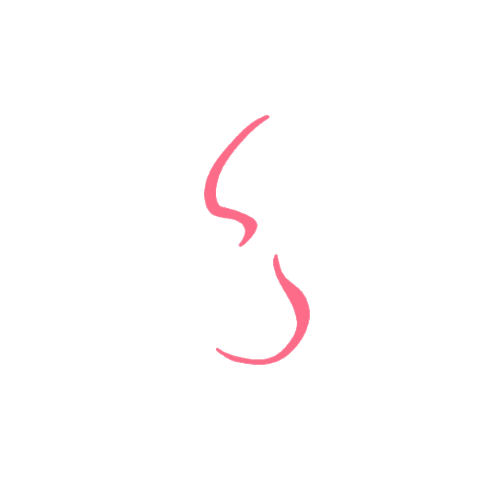How to Calm Anxiety: 14 Tips for Control Anxiety, including panic disorder, a common mental health condition characterized by excessive worry and heightened stress levels, can feel overwhelming and debilitating. It is a response to a perceived threat. But here’s the good news: there are effective strategies to help you calm excessive worry and reduce stress levels, allowing you to regain control of your life even if you suffer from panic disorder or feel threatened. By understanding the causes and symptoms of excessive worry, you can take proactive steps towards managing anxiety and improving your overall well-being. Excessive worry can lead to elevated stress levels and impact brain chemistry. Additionally, it is important to be mindful of the effects of caffeine on anxiety levels. Therapy, medication, and lifestyle changes are powerful tools for people with anxiety disorder to manage stress levels and reduce alcohol consumption. Therapy provides a safe space for people with anxiety disorders to explore their thoughts and emotions while learning coping mechanisms. This can be especially helpful for individuals who may turn to alcohol as a way to manage their anxiety. Being part of a therapy group can provide additional support and understanding from others who are going through similar experiences. Medication can help regulate brain chemistry, reducing anxiety symptoms. Lifestyle changes such as exercise, mindfulness practices, healthy sleep habits, and caffeine consumption contribute to long-term anxiety management for people in a group setting. Remember, you’re not alone in this battle against anxiety. With the right support and techniques, people can find relief and live a fulfilling life, even if they consume caffeine. Recognizing Symptoms of Anxiety and Panic Attacks Recognizing the symptoms of anxiety and panic attacks in people who consume caffeine is crucial for early intervention and effective treatment. By understanding the physical and emotional signs, people can identify when anxiety is taking hold and take steps to calm themselves down. Caffeine can exacerbate these symptoms, so it’s important for individuals to be mindful of their caffeine intake. Let’s dive into some common symptoms of anxiety and panic attacks to help people better recognize them. Common Symptoms of Anxiety Anxiety is a condition that affects people, characterized by excessive worry, restlessness, and difficulty concentrating. It can manifest in various ways for people, both physically and emotionally. Here are some common symptoms: Excessive worrying: People feeling constantly on edge or worrying excessively about everyday situations. Restlessness: Being unable to relax or feeling restless. Difficulty concentrating: Many people are finding it hard to focus or experiencing mind blanks. Irritability: Feeling easily irritated or becoming agitated over small things. Muscle tension: Tightness in muscles, often leading to headaches or body aches. Sleep disturbances: Having trouble falling asleep, staying asleep, or experiencing restless sleep. These symptoms may vary from person to person, but they often interfere with daily life activities and cause distress. Understanding Panic Attacks Panic attacks are intense episodes that come on suddenly without warning. They usually reach their peak within minutes but can last longer in some cases. During a panic attack, you may experience the following symptoms: Rapid heartbeat: Your heart may start pounding rapidly or feel like it’s racing. Shortness of breath: You may struggle to catch your breath or feel like you’re suffocating. Chest pain or discomfort: A tightness or pressure sensation in your chest may occur. Sweating: Profuse sweating even when not engaging in physical activity. Trembling or shaking: Uncontrollable trembling or shaking of the body. Dizziness or lightheadedness: Feeling faint, dizzy, or lightheaded. Nausea or stomach distress: Upset stomach, queasiness, or even vomiting. Fear of losing control: A sense of impending doom or fear of going crazy. Fear of dying: Feeling like you’re about to die or that something terrible is happening. Panic attacks can be terrifying and overwhelming, often leading individuals to seek immediate medical attention. The Importance of Recognizing Symptoms Recognizing the symptoms of anxiety and panic attacks is crucial for several reasons: Early intervention: Identifying symptoms early allows for prompt intervention and treatment, preventing the condition from worsening. Effective treatment: Understanding the signs helps healthcare professionals provide appropriate treatment tailored to your needs. Reducing distress: Recognizing symptoms allows you to take steps to calm yourself down and manage anxiety more effectively. Seeking support: Knowing the signs enables you to reach out to loved ones for support and understanding. By recognizing these symptoms, you take a significant step towards managing your anxiety and seeking help when needed. Seeking Professional Help for Untreated Anxiety Untreated anxiety can have a significant impact on your daily life and overall well-being. It’s important to recognize that excessive worry, fear, and panic attacks are not something you have to face alone. Seeking professional help from a mental health professional can provide valuable guidance and support in managing your anxiety. It’s crucial to consult with a qualified health professional who specializes in anxiety disorders. They have the knowledge and expertise to assess your symptoms accurately and develop an individualized treatment plan tailored to your needs. Therapy: A Pathway to Calmness One of the most effective treatments for anxiety disorders is therapy, specifically cognitive-behavioral therapy (CBT). CBT focuses on identifying negative thought patterns and behaviors that contribute to anxiety and teaches strategies to challenge and replace them with more positive and rational thoughts. During CBT sessions, you’ll work closely with a therapist who will help you understand the root causes of your anxiety. They will guide you through various techniques such as relaxation exercises, breathing techniques, and exposure therapy. These techniques aim to reduce anxiety symptoms gradually by exposing you to feared situations in a controlled manner. Therapy provides a safe space for individuals struggling with anxiety to express their fears, worries, and concerns openly without judgment. It equips them with coping mechanisms that empower them to manage their symptoms effectively in everyday life. Medication: When Extra Support is Needed In some cases, medication may be prescribed alongside therapy for treating severe or persistent anxiety symptoms. Medications such as selective serotonin reuptake inhibitors (SSRIs) or

